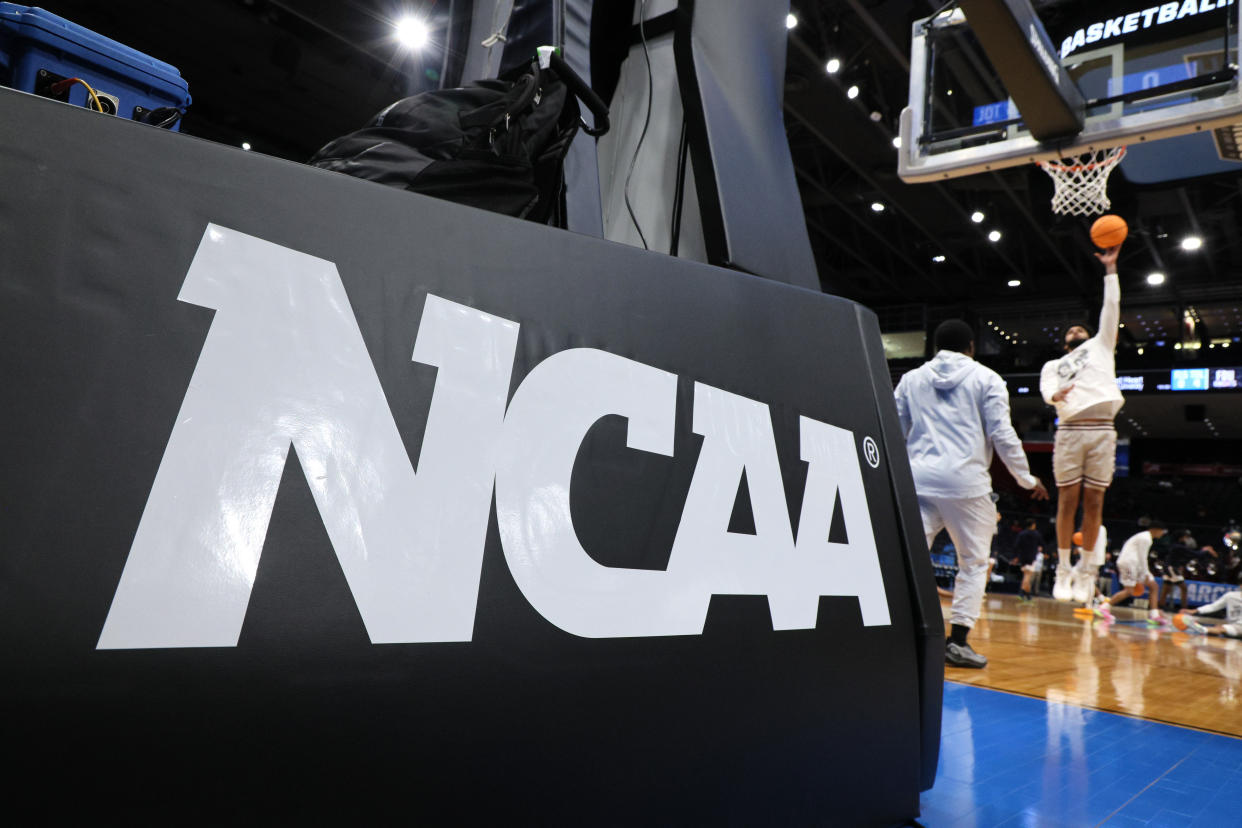Dartmouth men's basketball votes to unionize; what does that mean for college sports?
The Dartmouth men’s basketball team voted Tuesday to unionize — the first Division I college athletics team to hold a public unionization effort.
While historic, the move is likely months away from directly impacting other college athletic programs as an appeals process works its way through the National Labor Relations Board, the independent agency that enforces U.S. labor law related to collective bargaining.
The team voted 13-2 to unionize and authorized the Service Employees International Union (SEIU) to bargain on their behalf. A powerful and politically connected organization, the SEIU represents nearly 2 million employees over 100 occupations. The team is expected to present a list of demands, potentially including a student wage, more medical coverage and better treatment in a variety of team-related issues.
Such demands could spark players on other college teams to follow suit with similar efforts, charting a path for all college athletes to unionize as employees, legal experts say.
“It’s ironic that you have billions of dollars flowing through college football and it might be Dartmouth basketball that upends the system,” Gabe Feldman, a Tulane sports law professor and an expert on such NCAA matters, told Yahoo Sports in the fall.
“If the NLRB determines Dartmouth basketball players are employees, then there is a very strong argument that all private school DI athletes are employees, including walk-ons,” he continued. “The question then would be, ‘Does the NLRB determine that all of athletes, public schools as well, are employees?’”

Tuesday’s election was the second such in the last decade of major college athletics. In 2014, Northwestern football players held a union election, the results of which were never made public after the NLRB’s national board declined to recognize the union.
Tides, though, have turned within college athletics. Two years ago, NLRB general counsel Jennifer Abruzzo encouraged entities to file unfair labor charges against the NCAA. In a memo, she deemed college athletes employees under the National Labor Relations Act. The NLRB regional office in Boston agreed, deeming Dartmouth players as employees to open the door for Tuesday’s vote.
Now what?
Appeals timeline
Dartmouth is appealing the decision to the NLRB national board in Washington, D.C.
In the Northwestern case, the national board declined to recognize unionization, in part, because the NLRB only applies to private employers. Though it is a private school, Northwestern competes in the Big Ten, where, at the time, all other schools were public (the league since added USC). The NLRB ruled against jurisdiction arguing that one school having the ability to collectively bargain while others operate differently is a detriment to college sports. “The whole point is to have league-wide bargaining,” Michael LeRoy, an Illinois law professor who has published extensive work on labor policy, told Yahoo Sports in the fall.
All schools in the Ivy League are private, an important difference that could help the unionization effort. There is another difference between the Dartmouth filing and the Northwestern case, said Feldman. While Northwestern players received athletic scholarships, Ivy league schools do not offer such.
“It might be helpful to the unionization effort,” Feldman said. “They could claim, ‘We need to unionize to get better treatment in the form of athletic scholarships.’”
Beyond the NLRB national board, an appeal could eventually end up at the land’s highest court: the Supreme Court.
Inevitable employment
Experts say it is an ideal time for athletes to be deemed employees, given the Supreme Court’s Alston ruling, the implementation of NIL, the swing in public sentiment and maybe most important, a Democrat-controlled White House and Senate.
The four-person national board in Washington, D.C. for now holds a Democratic majority — a fact that is not insignificant. Liberal decisionmakers would lean to granting athletes employment rights. Abruzzo is a Joe Biden presidential appointee, a reminder that the presidential election this fall could result in an overhaul of the NLRB itself.
“The question is, is the NLRB thinking differently today than in 2015?” LeRoy asked. “There are signs that the NLRB would treat this differently than they did Northwestern.”
Beyond this case, there are several avenues in which athletes can be ruled employees, including a collective action suit out of Pennsylvania: Johnson v. NCAA. In another NLRB case, the NLRB Los Angeles region is pursuing unfair labor practice charges against USC, the Pac-12 and the NCAA as single and joint employers of FBS football players and Division I men’s and women’s basketball players.
“By definition, college athletes are employees under labor law,” NCPA director Ramogi Huma said in a previous interview. “They are skilled workers in their sport and are paid scholarships. They deserve the rights afforded to them under labor laws like every other American.”
